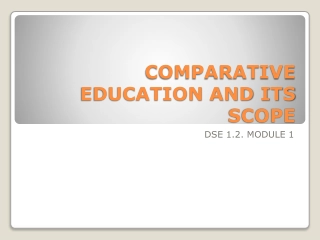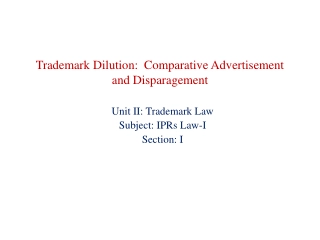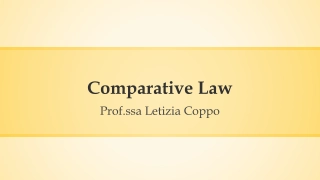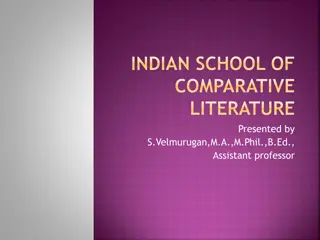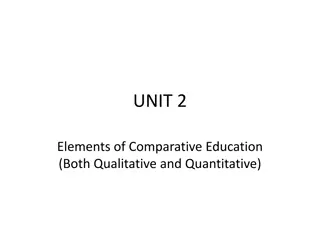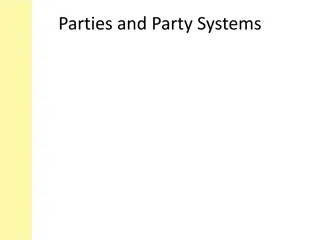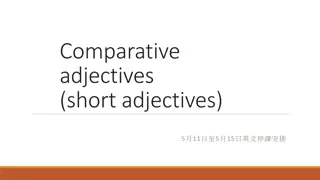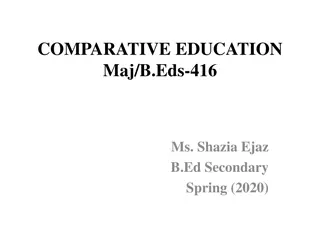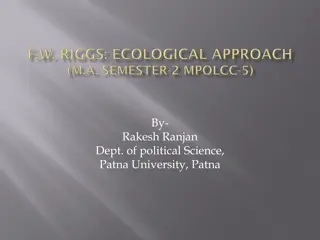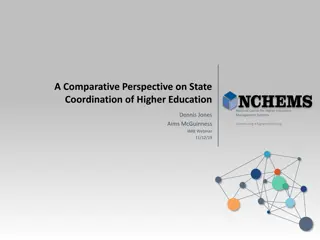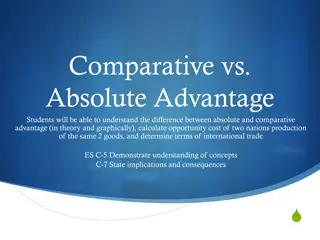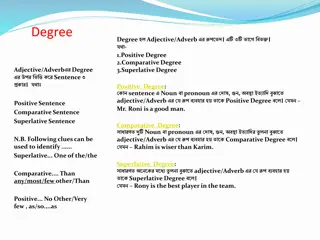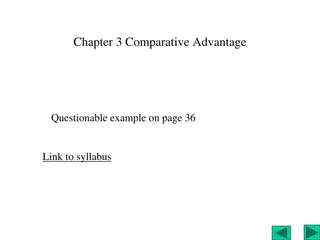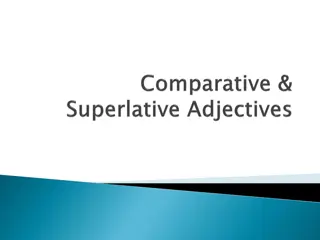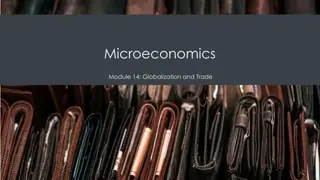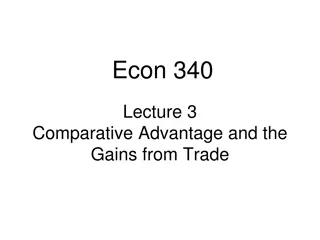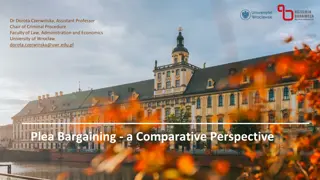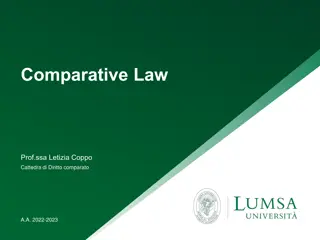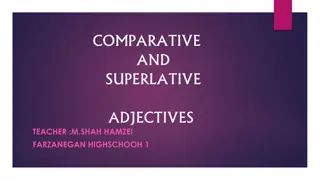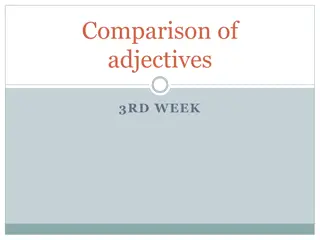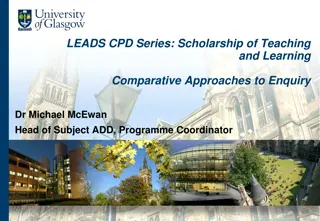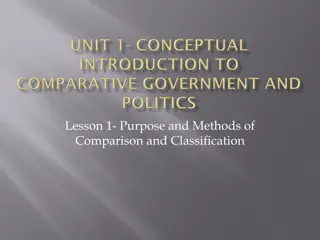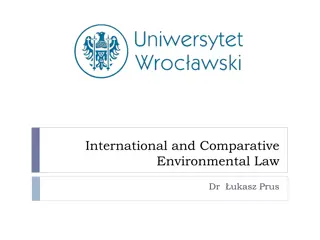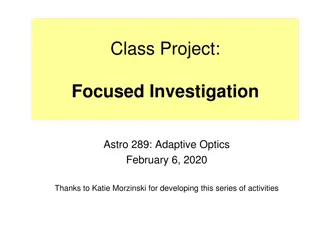Comparative Education and its Scope
The discipline of Comparative Education, its scope, and its impact on educational systems worldwide. Analyze different perspectives, geographical units, ideologies, themes, and historical development.
10 views • 6 slides
Trademark Dilution and Comparative Advertisement
Trademark dilution and comparative advertisement in trademark law. Understand the grounds for trademark infringement and the elements needed to establish dilution or disparagement. Explore the importance of protecting registered trademarks and the limitations of comparative advertisement.
0 views • 6 slides
Comparative Analysis of Positive Charge's Charging Stations Evolution
This PowerPoint template example created by Romy Bailey for Positive Charge showcases a comparative study of high-speed charging stations versus traditional charging stations, along with a comparison of past year versus current year data, and a year-over-year analysis of Positive Charge's growth. It
1 views • 6 slides
The Evolution of Comparative Law in Globalized Society
Comparative law delves into the diverse legal systems worldwide, aiming to identify convergences and divergences, promoting harmonization and understanding in an increasingly globalized world shaped by technological and digital advancements.
1 views • 38 slides
Comparative Sociology
Comparative Sociology is a specialized branch that compares societies to provide generalizations, focusing on the structure and jurisdiction of groups and organizations. It involves studying affinities and disparities to predict outcomes. The discipline is closely related to Social Anthropology. Com
3 views • 15 slides
Understanding Information Systems in Organizational Management
Management in organizations is divided into three levels: operational, tactical, and strategic. Each level requires different information systems to support various activities. Operational systems focus on routine transactions and control processes, while middle-level systems aid in semi-structured
9 views • 39 slides
Insights into the Indian School of Comparative Literature: A Comprehensive Overview
The Indian School of Comparative Literature, pioneered by Dr. Buddhadeva Bose in 1956 at Jadavpur University, plays a crucial role in studying the diverse languages and rich literary traditions of India. This academic discipline has grown significantly, with a focus on French symbolist poetry's infl
2 views • 14 slides
Comparative Education Objectives and Curriculum Overview
Comparative education aims to describe, develop, and establish relationships between educational systems and societies across countries. It seeks to regulate education aspects, facilitate reform, and promote international cooperation. The curriculum is defined as the total student experiences within
0 views • 51 slides
Understanding Party Systems in Comparative Politics
Parties in comparative politics play a crucial role in deepening democracy, connecting political society with the State, and maintaining accountability. The definition of a party can be categorized based on normative, motivational behavior, and operational perspectives. The development of party syst
0 views • 16 slides
Comparative Adjectives: Short Adjectives and Usage
Comparative adjectives are used to compare two things, such as the length, size, or appearance. They can be formed by adding -er to short adjectives like big, long, thin, short, and pretty. When the adjectives end in -y, change the -y to -i and add -er. Use "than" to compare two things in the same s
5 views • 10 slides
Understanding Comparative Education: Scope and Aims
Comparative education involves studying educational theories and practices across different countries to analyze the relationship between education and society. It aims to explain educational systems, aid in the development of institutions, and form generalized statements applicable in various natio
0 views • 31 slides
The Ecological Approach in Comparative Public Administration
Fred W. Riggs, a proponent of the Ecological Approach in Public Administration, emphasized the importance of understanding the interaction between administrative systems and their external surroundings. He introduced the Fused-Prismatic-Diffracted Model to explore the unique contexts of developing c
0 views • 21 slides
Approaches to Study Comparative Politics: Traditional vs. Modern Perspectives
This chapter discusses the importance of approaches in the study of comparative politics, categorizing them into traditional and modern perspectives. Traditional approaches include philosophical, historical, and traditional institutional approaches, highlighting their strengths and limitations. Mode
0 views • 7 slides
Comparative Analysis of Aviation Safety Management Systems: MSG-3 vs. SMS
The aviation industry continuously strives to enhance safety, leading to the development of Safety Management Systems (SMS) by ICAO and the longstanding Maintenance Steering Group (MSG-3) program. These systems focus on improving safety through different approaches, with MSG-3 emphasizing engineerin
1 views • 25 slides
Comparative Study of Apprenticeship Systems in England, Finland, and France
This comparative study explores the rhetoric and reality of apprenticeship systems in England, Finland, and France for 16-18 year-olds. It delves into the policy motivations behind researching apprenticeships and examines the roles of employers within these programs. The study also defines apprentic
3 views • 13 slides
Comparative Analysis of State Coordination in Higher Education Systems
This comparative perspective explores the state coordination of higher education in various states, highlighting the differences in governance structures, authority of boards, and levels of coordination. It cautions against replicating models due to unique state factors and emphasizes the distinct r
0 views • 17 slides
Understanding International Trade: Benefits, Specialization, and Comparative Advantage
International trade involves benefits and issues, with specialization playing a key role in driving economic patterns through resource distribution. David Ricardo's theory of comparative advantage revolutionized trade by focusing on producing goods efficiently. Absolute advantage and comparative adv
0 views • 12 slides
The Importance of International Trade: Benefits and Comparative Advantage
Nations engage in trade to exchange goods and services across borders, benefiting from comparative advantage to produce efficiently. Comparative advantage theory highlights the efficiency gains when each nation focuses on what it does best. Importing and exporting goods and services allow countries
0 views • 10 slides
Understanding Comparative and Absolute Advantage in International Trade
Understand the concepts of absolute and comparative advantage through theory, graphical illustrations, and opportunity cost calculations for two nations. Explore the implications and consequences of these concepts in terms of international trade. Specialization, division of tasks, and gains from tra
0 views • 15 slides
Examples of Superlative and Comparative Forms
The content includes examples of superlative and comparative forms, along with positive constructions. Images are used to illustrate each example, making it easy to understand the concepts. Different scenarios are presented to demonstrate the usage of superlative and comparative adjectives in senten
0 views • 42 slides
Understanding Degrees of Adjectives and Adverbs
This content explains the concept of positive, comparative, and superlative degrees of adjectives and adverbs in English grammar. It provides rules and examples for transforming positive into superlative, positive into comparative, comparative into positive, comparative into superlative, and more.
0 views • 8 slides
Understanding Comparative Advantage in Economics: Adam Smith and David Ricardo
Explore the concepts of absolute advantage versus comparative advantage as discussed by renowned economists Adam Smith and David Ricardo. Discover how free market principles, self-interest, and efficient resource allocation shape beneficial economic decisions. Delve into examples of comparative adva
0 views • 13 slides
Comparative and Superlative Adjectives Usage Guide
Discover how to form and use comparative and superlative adjectives to compare two or more nouns. Learn the rules for adding -er or -est endings, using "more" or "most," and irregular adjectives like "good" and "bad." Follow step-by-step formulas to create sentences with comparative and superlative
0 views • 11 slides
Comparative and Superlative in Pennsylvania Dutch 101
Covering the formation of comparative and superlative forms in Pennsylvania Dutch (PD), the content explains how PD adjectives add endings and change stem vowels to express comparison. It discusses irregular adjectives and provides examples to practice forming comparative forms in PD phrases.
0 views • 11 slides
Information Systems in Organizations: Overview and Implementation
Information systems play a crucial role in organizations, encompassing transaction processing systems, functional area information systems, and enterprise resource planning systems. This content delves into the purpose of transaction processing systems, the support provided by information systems ac
0 views • 30 slides
Comparative Law: Research, Analysis, and Resources
Explore the world of comparative law through research and study of legal systems, including Italian and foreign laws. Delve into comparative legal analysis, characteristics of legal systems, and the study of legal sources. Discover in-depth insights from a variety of books and academic journals, as
0 views • 36 slides
Understanding Globalization, Trade, and Comparative Advantage in Economics
Globalization and trade play a crucial role in the interconnected world economy. This module explores the gains from international trade, barriers to trade, costs of globalization, and the concepts of absolute and comparative advantage. Absolute advantage is when a country can produce a good using f
0 views • 27 slides
Understanding Comparative Advantage and Gains from Trade
In this lecture on comparative advantage and gains from trade, the concept of why countries trade, price differences, supply and demand, the Ricardian model of trade, identifying comparative advantage, and critiques of comparative advantage are discussed. The benefits of free trade and how it leads
0 views • 53 slides
Comparative Analysis of Plea Bargaining in Criminal Justice Systems
Research by Dr. Dorota Czerwinska delves into the practice of plea bargaining, examining its roots, benefits, and ethical considerations in various countries such as the USA, England, France, Germany, Italy, and Poland. The study explores the reasons behind the development of plea bargaining and que
0 views • 27 slides
Comparative Law Course Overview for A.Y. 2022-2023 by Prof.ssa Letizia Coppo
Dive into the world of comparative law with Prof.ssa Letizia Coppo in the academic year 2022-2023. The course covers key legal systems worldwide, including Western, Eastern, and religion-based traditions. Explore the impact of technological and digital revolutions on global law, legal transplants, u
0 views • 34 slides
Comparative Study on Mongolic and Tungusic Languages
Explore the fascinating linguistics of Mongolic and Tungusic languages, delving into their historical sources, internal reconstruction, morphology, syntax, and class markers. Discover the parallels and differences between these language families, analyzing aspects such as sound systems, lexicon, and
0 views • 16 slides
Comparative Study of Apprenticeship Systems in VET: England vs Germany
Qualitative comparative study by Erika E. Gericke explores the influence of apprenticeship systems on professionalization in Vocational Education and Training (VET) in England and Germany. Findings delve into biographical orientations towards occupation, the role of VET systems, changes in the worki
0 views • 12 slides
Understanding Comparative and Superlative Adjectives: M. Shah Hamzei Farzanegan High School
Learn how comparative and superlative adjectives are used to compare objects in English language. Find out the rules to form the comparative and superlative forms of adjectives based on the number of syllables, spelling changes, and exceptions. Improve your English language skills with practical exa
0 views • 13 slides
Comparative and Superlative Forms of Adjectives in Latin Grammar
Exploring the declension patterns and irregular forms of comparative and superlative adjectives in Latin, including examples and comparisons with paradigms of different declensions. Learn about the nuances in the declining of 3rd declension adjectives and their comparative forms, along with exercise
0 views • 14 slides
Comparative Approaches in Educational Enquiry: A Scholar's Perspective
This session delves into the world of comparative research in education, exploring different settings and methodologies. Dr. Michael McEwan shares insights on Glassick's Framework for design and the importance of appropriate methods. Discover the essence of comparative research, including ex post fa
0 views • 18 slides
Comparative Government & Politics Course Overview
Explore the purpose and methods of comparison and classification in the AP Comparative Government & Politics course. Understand the importance of studying diverse political systems such as those of the United Kingdom, Russia, China, Nigeria, Mexico, and Iran. Engage in country fact sheets, multiple-
0 views • 19 slides
Understanding Embedded Systems and Cyber-Physical Systems
Embedded systems are specialized computer systems embedded within larger systems, such as control systems and car controllers. This lecture covers real-time aspects, applications of Cyber-Physical Systems (CPS), and examples like the Boeing 777/Airbus A380 cockpit. It discusses the design process of
0 views • 22 slides
Comparative and International Environmental Law Course Overview
Explore the world of Comparative and International Environmental Law with Dr. ukasz Prus through in-depth examinations, take-home exams, and insightful discussions on topics such as environmental policy, law sources, and regional systems. Dive into the complexities of waste management, common legal
0 views • 102 slides
Exploring Adaptive Optics Systems in Astronomy: Comparative Analysis of AO Systems for HR 8799 Planetary System
Delve into the world of adaptive optics (AO) systems through a focused investigation on imaging the HR 8799 planetary system. Compare and contrast different AO systems, discuss science goals and design choices, and analyze observational details and results. Explore which AO system is optimal for HR
0 views • 27 slides
New Global Developments in Comparative Politics Since the 1980s
The lecture by Dr. Maame Adwoa A. Gyekye-Jandoh explores new global developments in Comparative Politics since the 1980s, covering topics like rapid industrialization in Asia and the collapse of communism in the Soviet Union and Eastern Europe. Students are introduced to key concepts such as the Com
0 views • 20 slides
